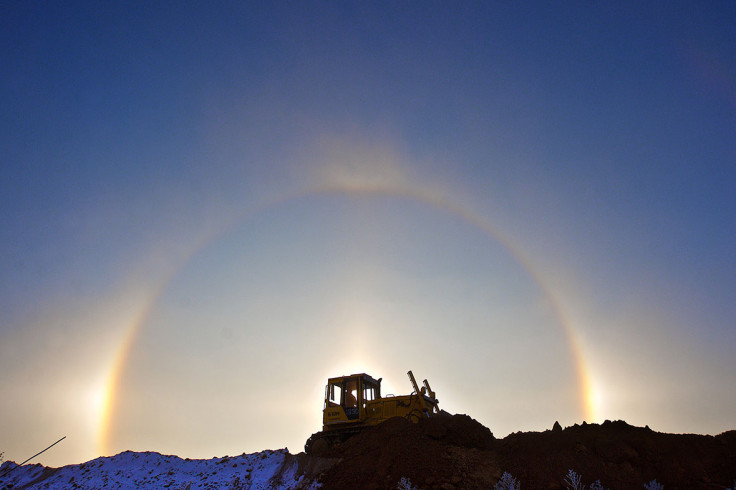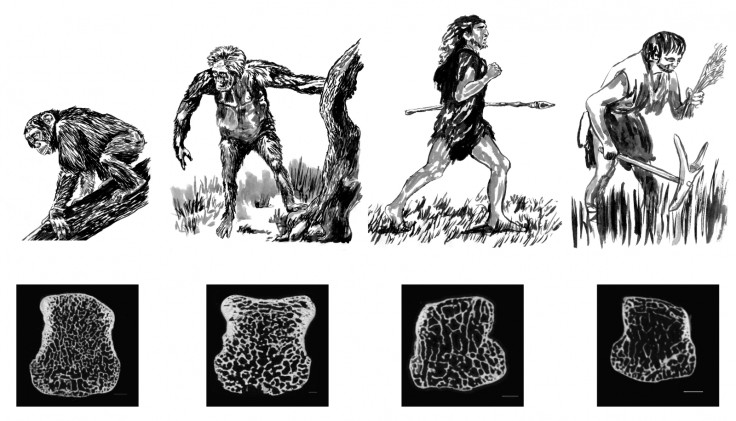Humans' fragile bones the result of swapping foraging for farming

Our bones have become far lighter and more fragile as a result of a shift from foraging to farming, researchers have found.
Published in the journal Proceedings of the National Academy of Sciences, experts believe human bones have become more breakable since our lifestyles became more sedentary.
Hunter-gatherers living about 7,000 years ago had bones as strong as orangutans, with bone mass about 20% higher in this group.
They x-rayed samples of human femur bones from the archaeological record along with the bones from other primate species.
Findings showed that hunter-gatherers had much thicker bones from constant physical activity roaming the landscape for food: "This fierce exertion would result in minor damage that caused the bone mesh to grow back ever stronger and thicker throughout life," the authors said in a statement.
Experts ruled out diet differences and changes to body size to find that reduction in physical activity has caused degradation of human bone strength over the last 1,000 years – which they say could become even more profound as our lives become even less physically demanding.
They also said there is no reason why a person today could not achieve a bone strength of an orangutan, but that even the most active people are unlikely to load their bones with the frequent and intense stress needed for this increase in strength seen among hunter-gatherers.

Study co-author Colin Shaw, from the University of Cambridge, said: "Contemporary humans live in a cultural and technological milieu incompatible with our evolutionary adaptations.
"There's seven million years of hominid evolution geared towards action and physical activity for survival, but it's only in the last say 50 to 100 years that we've been so sedentary - dangerously so. Sitting in a car or in front of a desk is not what we have evolved to do."
"The fact is, we're human, we can be as strong as an orangutan - we're just not, because we are not challenging our bones with enough loading, predisposing us to have weaker bones so that, as we age, situations arise where bones are breaking when, previously, they would not have."
Habiba Chirchir, lead author of the paper and a postdoctoral researcher at the Smithsonian Institution's National Museum of Natural History, said: "Our study shows that modern humans have less bone density than seen in related species, and it doesn't matter if we look at bones from people who lived in an industrial society or agriculturalist populations that had a more active life. They both have much less bone density.
"What we want to know now is whether this is an early human characteristic that defines our species."
© Copyright IBTimes 2025. All rights reserved.






















